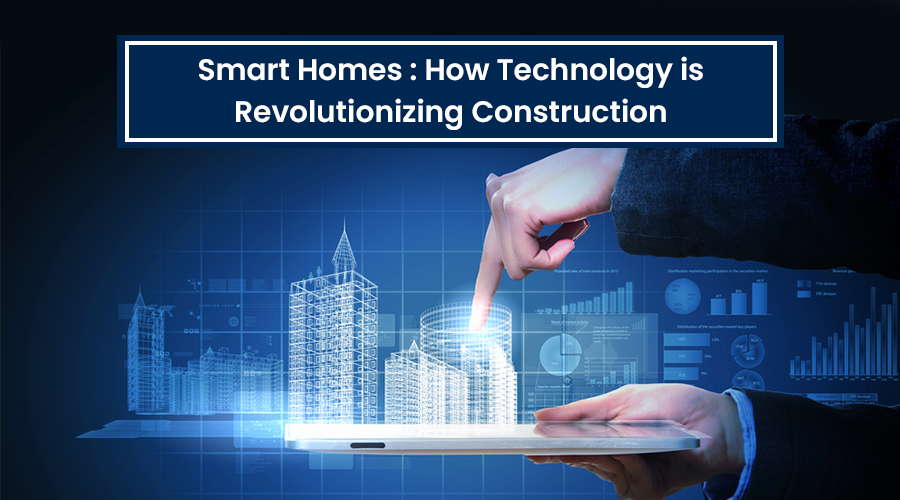Introduction
The rapid advancement of technology has brought about significant changes in various industries, and the construction sector is no exception. Smart homes, also known as automated or intelligent homes, are becoming increasingly popular due to the convenience, comfort, and energy efficiency they offer. In this blog post, we will explore how technology is revolutionizing the construction industry by incorporating smart features into residential buildings.
Enhanced Home Security
One of the key advantages of smart homes is the integration of advanced security systems. Traditional locks and alarm systems are being replaced by smart locks, video doorbells, and motion sensors. These devices can be controlled remotely, allowing homeowners to monitor and manage their home security from anywhere. Additionally, smart security systems can send real-time notifications to the homeowner’s smartphone in the event of any suspicious activities, providing a greater sense of safety.
Energy Efficiency and Sustainability
Smart homes are designed to optimize energy usage and reduce waste. The integration of smart thermostats, energy-efficient appliances, and automated lighting systems allows homeowners to easily regulate energy consumption. These devices can learn from user behavior and adjust settings accordingly, leading to significant energy savings. Additionally, smart homes can incorporate renewable energy sources, such as solar panels, to further reduce reliance on traditional power grids, resulting in a greener and more sustainable living environment.
Intelligent Home Automation
Automation is at the core of smart homes, offering residents the ability to control various aspects of their homes with just a few taps on their smartphones or through voice commands. From adjusting the temperature, controlling lighting, and managing home entertainment systems to even watering the garden, smart home automation provides unparalleled convenience. Integration with virtual assistants, like Amazon Alexa or Google Assistant, enables homeowners to control their homes effortlessly, enhancing their overall living experience.
Improved Comfort and Accessibility
Smart homes are designed to enhance comfort and accessibility for residents. For instance, smart thermostats can adjust room temperatures based on individual preferences, ensuring optimal comfort throughout the day. Motorized blinds or curtains can be controlled remotely, allowing natural light to enter the room or providing privacy as desired. Moreover, smart homes can incorporate features to assist people with mobility challenges, such as voice-activated doors, automated ramps, and smart appliances with user-friendly interfaces.
Real-Time Monitoring and Maintenance
Technology enables homeowners to monitor their homes in real time, even when they are away. Smart cameras and sensors can detect any anomalies, such as water leaks or smoke, and immediately alert the homeowner. This proactive monitoring allows for quick action to mitigate potential damages. Additionally, smart home systems can track energy usage, water consumption, and other vital parameters, providing valuable insights for homeowners to optimize their resource utilization and potentially reduce maintenance costs.
Conclusion
The emergence of smart homes has revolutionized the construction industry, providing homeowners with a range of benefits, including enhanced security, energy efficiency, convenience, and comfort. As technology continues to advance, we can expect further innovations in the construction of smart homes. From AI-powered virtual assistants to advanced Internet of Things (IoT) devices, the future holds immense possibilities for creating intelligent living spaces. Smart homes are not only transforming the way we live but also contributing to a more sustainable and connected world.

